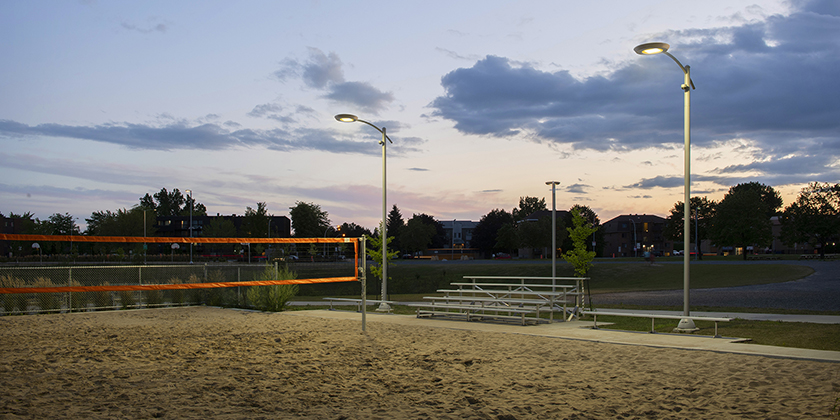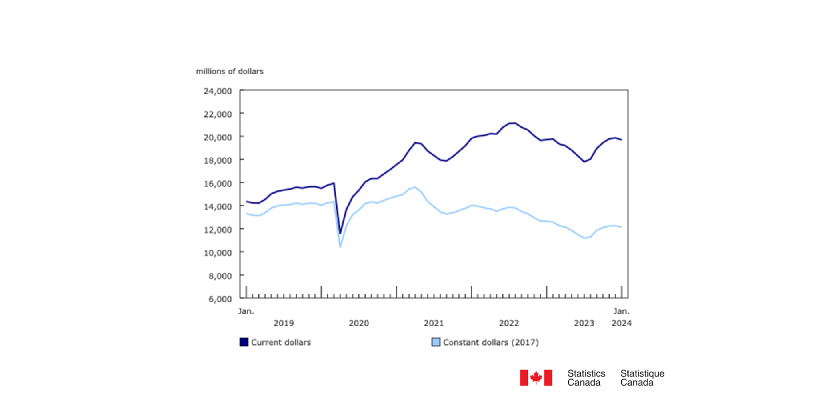CCO Secures $4.5M Funding Grant to Strengthen NCS Training

October 6, 2021
Modern buildings increasingly need to be “smart” to meet customer demands, packed with building automation and power-over-ethernet systems alongside voice and data networks. This requirement has created a critical need for qualified union network cabling specialists to handle these installations.
To help meet the demand, the Construction Council of Ontario recently secured a $4.5 million provincial grant to recruit workers into IBEW-designed NCS training and development programs.
“Building relationships with Ontario’s Progressive Conservative government that, for the most part, opposes unions was challenging, but the result has been likely one of the most beneficial periods for our members and for those working in the electrical trade,” CCO Executive Secretary Treasurer James Barry said. “Today, our calls are returned, and we have the ear of Premier [Doug] Ford and a close working relationship with Monte McNaughton, Ontario’s Minister of Labour, Training and Skills Development.”
“A great deal of our work these days requires us to wire for smart buildings and power-over-ethernet, too,” said First District International Vice President Tom Reid. “We’re always looking for opportunities to make bigger strides in this sector.”
The first step in that process was figuring out how to work with the Ford government. “With members’ future and the trade at stake, it was clear a combative approach wouldn’t work,” Barry said. It also meant working closely with signatory contractors through the Electrical Contractors Association of Ontario.
ECAO Executive Director Graeme Aitken and Barry sought third-party experts to help navigate the challenges. “We followed their advice, invested time in working with the government and got to know political leaders more personally,” Barry said.
Aitken agreed. “In a fully collaborative mode, the CCO and ECAO presented a non-partisan, industry perspective to government and other stakeholders,” he said. “Together, we have demonstrated the immeasurable value in setting shared goals.”
After several months, Barry said, a shift in the government’s tone and attitude was noticeable. “They were actually listening and acting on our advice,” he said.
The NCS program funding is one example of how the government has listened. “We framed things to clarify this was a win for everyone, addressing the critical skills shortage in the communications sector and where it was apparent that some in the nonunion sector were working without proper training or supervision,” Barry said. The government understood that, to address future needs, it had to ensure there were skilled workers to complete this work safely and effectively.
Until recently, only Hamilton Local 105, Toronto Local 353 and Thunder Bay Local 402 provided NCS training in Ontario. Thanks to the grant, Ottawa Local 586, Kitchener Local 804 and Sudbury Local 1687 will also become training delivery agencies, with some funds spent on instructors and equipment.
“After demonstrating our training centres’ success, our focus on professionalism and safety and our commitment to work closely with our contractors, the government chose to provide funding to help us fill the shortage of NCS skilled workers,” Barry said.
Hamilton Local 105’s Rich DiPietro, who has experience in membership development and sector-building with his own local and St. Catharine’s Local 303, was hired to oversee things, along with six other Membership Development coordinators and educators representing more than 18,000 IBEW members.
“We created this program to ensure we can build a highly trained workforce that’s prepared for advancement,” DiPietro said.
The program embraces development of high-level training, including updated courses and curriculum to ensure consistent standards across Ontario, plus mentorships to ensure skills and training are passed on.
“Our recruitment highlights the benefits of working as an NCS, the importance we place on safety and the many benefits of working with the IBEW and ECAO,” DiPietro said. “We’re also highlighting the value in holding a 631A licence, setting them apart from non-union workers as the highest skilled and best trained.”
The increased demand for smart buildings and NCS skilled workers is an example of why it’s important for the IBEW to continue to evolve and show leadership in the technology and communications sector.










![Guide to the Canadian Electrical Code, Part 1[i], 26th Edition – A Road Map: Section 10 – Grounding and Bonding](https://electricalindustry.ca/wp-content/uploads/2022/11/Guide-CE-Code-2.png)





